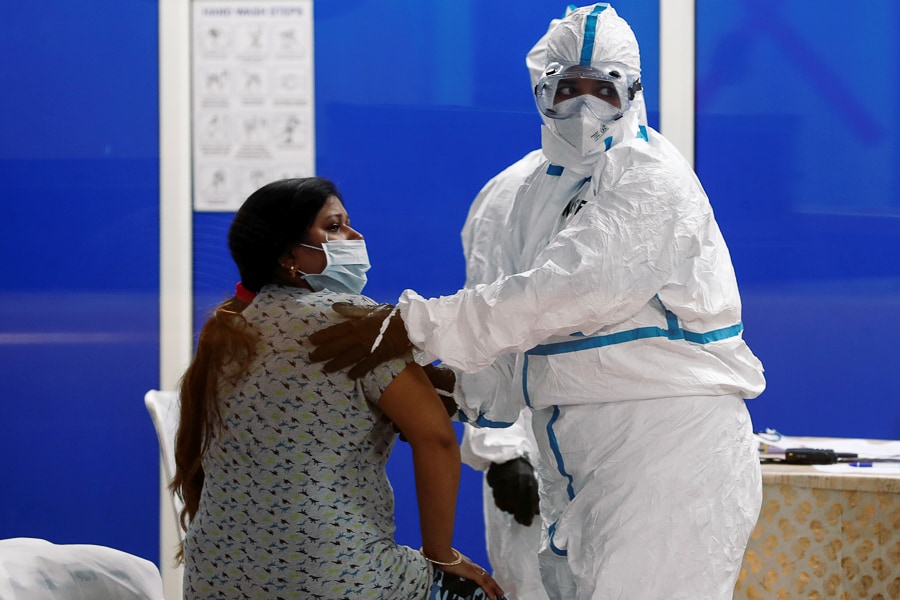
Immunity to the Coronavirus may last years, new data hint
Blood samples from recovered patients suggest a powerful, long-lasting immune response, researchers reported
 A medical worker assists a woman inside a care centre for the coronavirus disease (COVID-19) patients at an indoor sports complex in New Delhi, India, July 20, 2020.
A medical worker assists a woman inside a care centre for the coronavirus disease (COVID-19) patients at an indoor sports complex in New Delhi, India, July 20, 2020.
Image: Adnan Abidi / Reuters
How long might immunity to the coronavirus last? Years, maybe even decades, according to a new study — the most hopeful answer yet to a question that has shadowed plans for widespread vaccination.
Eight months after infection, most people who have recovered still have enough immune cells to fend off the virus and prevent illness, the new data show. A slow rate of decline in the short term suggests, happily, that these cells may persist in the body for a very, very long time to come.
The research, published online, has not been peer-reviewed nor published in a scientific journal. But it is the most comprehensive and long-ranging study of immune memory to the coronavirus to date.
“That amount of memory would likely prevent the vast majority of people from getting hospitalized disease, severe disease, for many years,” said Shane Crotty, a virologist at the La Jolla Institute of Immunology who co-led the new study.
The findings are likely to come as a relief to experts worried that immunity to the virus might be short-lived, and that vaccines might have to be administered repeatedly to keep the pandemic under control.
©2019 New York Times News Service




